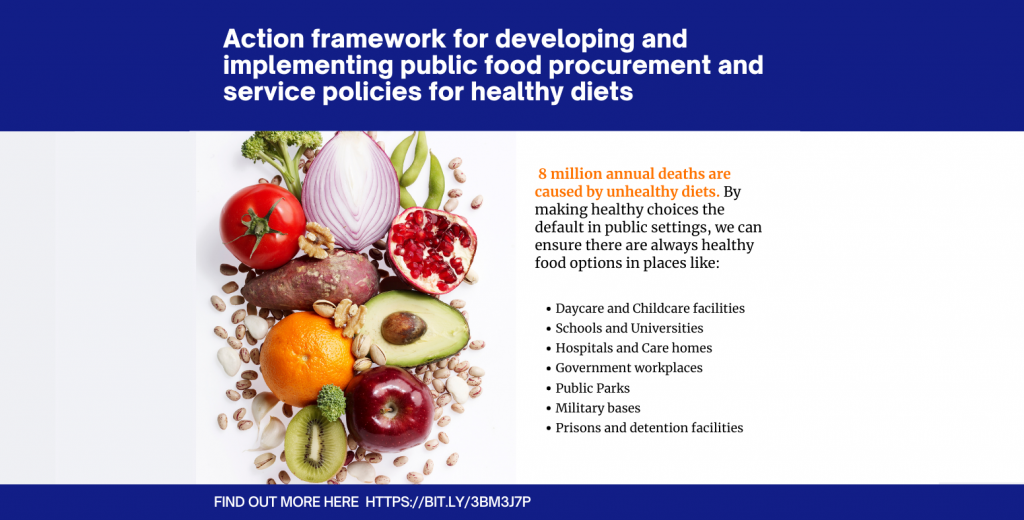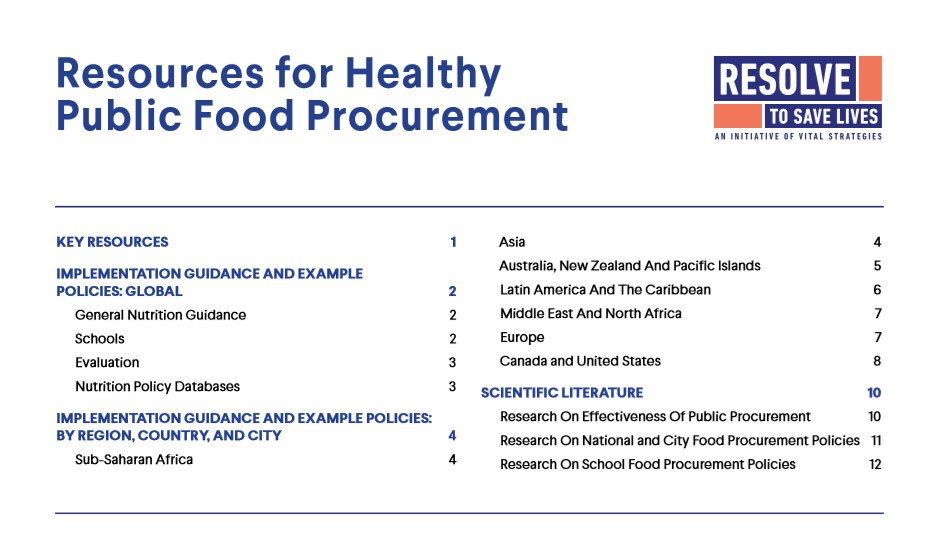Implementing Effective Salt Reduction Programs and Policies in Low- and Middle-Income Countries

In August, the Public Health Nutrition published a studied titled “Implementing effective salt reduction programs and policies in low-and-middle-income countries: learning from retrospective policy analysis in Argentina, Mongolia, South Africa and Vietnam”. This study by Webster et al, follows the Walt and Gilson’s ‘Health Policy Triangle’ to analyse the context, content, process and actors of the implementation of salt policy. The study found that each […]
A Decade of Food and Nutrition Policy in Portugal (2010-2020)

Published in the Portuguese Journal of Public Health on the 29th of October 2020, Graca, Gregorio and Freitas reviewed food- and nutrition-related policies and progress in Portugal over the last decade. The authors reflected on the main strategic documents, namely “The Platform against Obesity” (2007 – 2011), the “Promotion of Healthy Eating” (2012 – present) […]
WHO Launch of Action framework for developing and implementing public food procurement and service policies for a healthy diet

Around the world, millions of meals and snacks are served and sold to the public every day through institutions like schools, government offices, health care facilities, military bases, and correctional facilities. This presents an opportunity to improve the diets of the population by ensuring all food served and sold in these settings meet nutritional standards. […]
Health Canada Voluntary Sodium Reduction Targets for Processed Foods 2020-2025

On 18th December 2020, Health Canada published their Voluntary Sodium Reduction Targets for Processed Foods 2020-2025. These targets build on the 2012 targets, set until the end of 2016, that aimed to achieve a reduction in sodium intake to 2300 mg/day. The updated targets are based on a 15 to 20% reduction from the 2017 measured […]
The effectiveness and feasibility of taxes on salt and foods high in sodium: what’s the evidence?

Published in Advances in Nutrition, Dodd et al conducted a systematic review to investigate the effectiveness and feasibility of salt taxation as a policy measure to improve population health. The review searched peer-reviewed and grey literature published between January 2009 and October 2019. A total of 18 relevant studies were reviewed, consisting of modelling (n=8), […]
Estimated social return on investment of Salt Reduction programs in Australia

The George Institute commissioned Health Technology Analysts Pty Ltd to assess the benefits of implementing policies or community interventions to reduce nationwide salt intake in Australia. Economic modelling was conducted using the Social Return on Investment (SROI) framework to assess broader socio-economic impacts of varying levels of salt reduction through three types of salt reduction […]
LINKS toolkit: Resources for Healthy Public Food Procurement

LINKS (a collaboration between WHO, the CDC Foundation and Resolve to Save Lives) recently published a toolkit of resources for healthy public food procurement policies – these policies ensure that foods procured or served in public settings contribute to a healthy diet. Resources include implementation guidance and examples of policies from around the world, and […]
Strengthening Malaysia’s National Salt Reduction Strategy (2015-2020)

Last year Dr Kathy Trieu and Prof Jacqui Webster from The George Institute for Global Health conducted an interim evaluation of Malaysia’s national salt reduction strategy with a view to identifying areas where the strategy could be strengthened. The mid-term evaluation report including the six key recommendations for enhancing implementation is now published on the […]
Food industry fails to drop the salt – evaluation of self-regulation in Australia

Researchers from The George Institute for Global Health analysed data from the Foodswitch database to assess if there were any changes in salt content between 2013 and 2017 in over 4,500 products from 16 Australian food manufacturers. The study found no clear evidence of reductions in salt levels overall, including 10 member companies of The […]
Scaling-up food policy interventions to reduce NCDs in the Pacific Islands

In August this year, National Health and Medical Research Council (NHMRC) grants were officially awarded through the Global Alliance of Chronic Disease (GACD) funding round, focused on scaling up interventions to reduce the burden of diabetes and hypertension. The George Institute was awarded funding in partnership with Fiji National University, Deakin University and the University […]